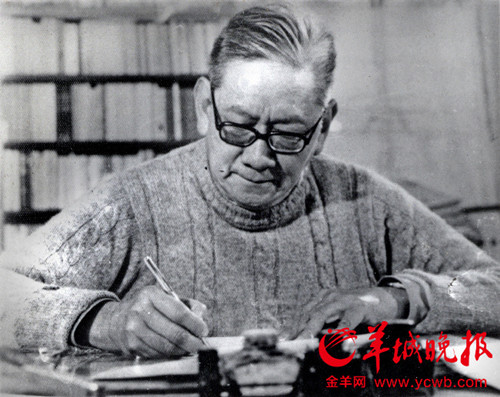Qin Mu (1919-1992)
Qin Mu, also called Lin Paike and Lin Juefu, was a famous Chinese educator and writer particularly known for his essays, novels, plays, poems and criticism.
He was born in Hong Kong and moved to Chenghai district, Shantou, Guangdong province, due to his family's declining fortunes. He was educated in Chenghai district, Shantou, and Hong Kong.
From 1942, he began to write essays critical of the current political situation. Later, he wrote essays and edited articles for journals and newspapers, such as the Xinhua Daily and Chinese Worker.
After the foundation of the People's Republic of China, he served as a section chief for the Education Department of Guangdong Province, and editorial director of Zhonghua Book Company. During the 1950s and 1960s, Qin was the vice editor-in-chief of Yangcheng Evening News. He also served as one of the judges for essay competitions held in Singapore, Thailand and the Philippines.
 |
|
Qin Mu working on an article at the Yangcheng Evening News. Qin served as the paper's vice editor-in-chief in the 1950s and 60s. [File photo/Yangcheng Evening News] |
Qin Mu's literary writing started in the 1940s. The Corpus of Qin Mu consists of 10 volumes and contains his collected works of more than 5 million words.
Renowned as a "Mater of Prose", Qin wrote about 700 proses that are included in more than 10 collections such as The City of Flower, Red Fruit of Forest in Autumn and Drops of Forest.
One significant feature that distinguishes him from any other writers is his wide variety of themes. In his writing, he envisages the future, recalls ancient times, and glorifies those responsible for constructing a new society.
From the past to the present, from plants and animals, to human beings, from folk tales to modern technologies, all could be found in his essays and proses, which are included in textbooks for Chinese students.



 Print
Print Mail
Mail

